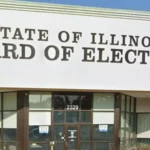
On June 18, the U.S. Supreme Court upheld Tennessee’s Senate Bill 1 (SB1), ruling that the state may lawfully prohibit medical procedures when the purpose of those procedures is to “[e]nable a minor to identify with, or live as, a purported [gender] identity inconsistent with the minor’s sex.”1 The Court’s decision upholds our federalist system of governance and reaffirms the role of the states in regulating medicine, protecting children, and safeguarding the public interest.
Tennessee’s SB1, codified as Tenn. Code Ann. § 68-33-101, banned medical interventions such as puberty blockers, hormone therapies, and irreversible gender reassignment surgeries for individuals under eighteen years old when performed for the purpose of gender transition. Tennessee is one of more than twenty states that have passed laws restricting this practice due to concerns about irreversibility, potential side effects, and children’s capacity to provide fully informed consent for these treatments.
In December 2023, the Biden administration petitioned the Court to answer whether SB1 violated the Fourteenth Amendment’s Equal Protection Clause. The Court noted that SB1 incorporates two classifications—one based on age and one based on medical use—concluding that “classifications that turn on age or medical use are subject to only rational basis review.”3 The Court refused to apply a higher “strict scrutiny” standard.
In rejecting the Biden administration’s challenge, the Court declined to recognize a new suspect class for those with purported changing gender identities. In doing so, it reaffirmed the intended purpose of the Equal Protection Clause: to safeguard individuals with clearly defined, immutable characteristics with histories of extensive de jure discrimination—such as race, sex, or national origin—rather than self-asserted identities.
The Court’s liberal wing dissented to differing degrees. Justice Sotomayor, joined by Justice Jackson, argued that this law in fact does turn on sex, rather than the medical purpose of the treatments, and therefore requires intermediate scrutiny. Justices Sotomayor and Jackson also suggested that the law may have been passed with “unlawful stereotypes” about gender roles in mind. They believe that SB1 will cause “untold harm to transgender children and the parents and families who love them,” hinting at how they believe the law would fare under intermediate scrutiny.
In a more measured approach, Justice Kagan agreed with the other progressives that this law implicates sex and thus requires intermediate scrutiny but noted that “both the plaintiffs and the Government asked this Court not to itself apply heightened scrutiny[.]” She would abide by this request and therefore offered little insight as to how she would decide on this law under heightened review.
The Court’s decision in United States v. Skrmetti sets an important precedent that reestablishes the principle that the states—not federal courts—should govern areas of science and morality where no constitutional text demands otherwise. If unelected judges are permitted to determine medical treatment standards without clear constitutional authorization, it undermines both the legitimacy of the judiciary and the sovereignty of the states. Moreover, “[t]he views of self-proclaimed experts do not ‘shed light on the meaning of the Constitution.’”4 Thus, whether “major medical organizations” agree with the result of Tennessee’s democratic process is irrelevant.5 The Supreme Court’s decision is a thoughtful application of judicial restraint that has been emblematic of the Roberts Court.
Footnotes
- Tenn. Code Ann. § 68-33-101(n)(1). ↩︎
- United States v. Skrmetti, No. 23-477, slip op. at 9 (2025) (citing Massachusetts Bd. of Retirement v. Murgia, 427 U.S. 307, 312–314 (1976); Vacco v. Quill, 521 U.S. 793, 799–808 (1997)). ↩︎
- Dobbs v. Jackson Women’s Health Org., 597 U.S. 215, 272–273. ↩︎
- United States v. Skrmetti, No. 23-477 (2025) (Thomas, J. concurring). ↩︎
SUPPORT LANDMARK LEGAL FOUNDATION
We are truly facing existential threats to our individual rights and liberties, the Constitution, and our national character. If unchallenged, this assault on our very way of life will ruin our great nation. With your financial and moral support, Landmark is not going to let that happen without a fight. Will you join us?
JOIN OUR MAILING LIST
Never miss an update from Landmark Legal Foundation as we continue the fight to preserve America’s principles and defend the Constitution from the radical left.





